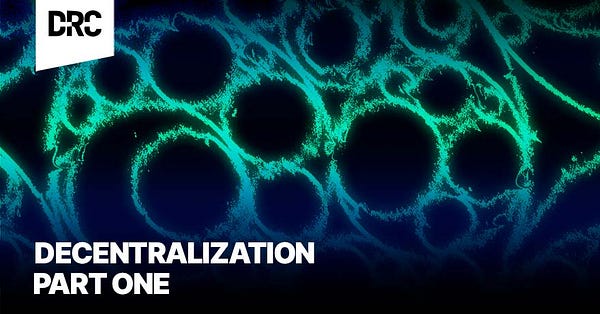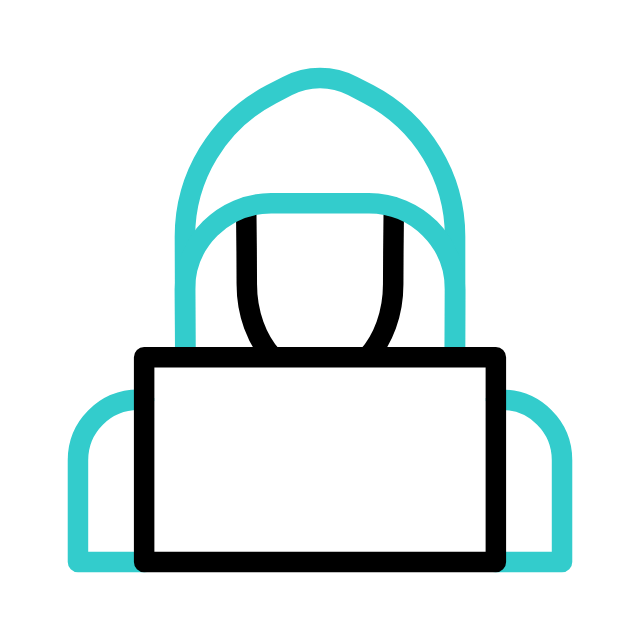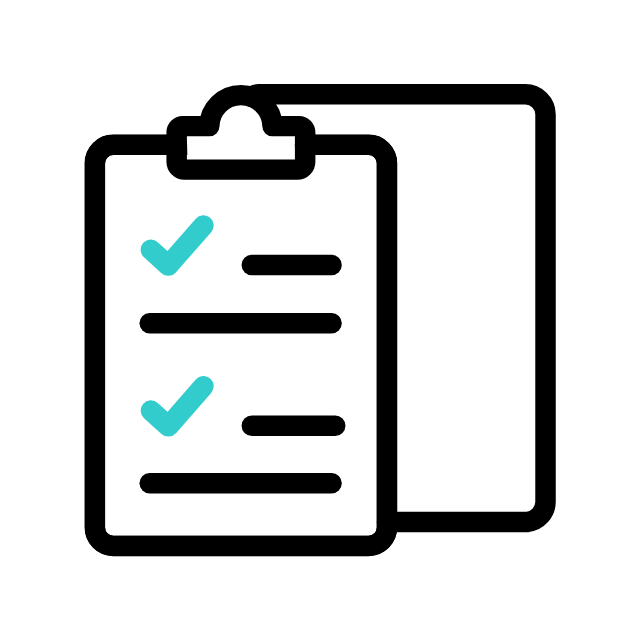Edition No. 14
The Solana hack; SEC investigation of all exchanges; NFT legal questions answered; Forsage Ponzi lawsuit; the FDIC crypto advisory, and more. Here's what happened from 8/1/2022 - 8/8/2022.
Welcome to another edition of Around the Blockchain, the weekly letter dedicated to keeping readers like you up to date on the fast-paced world of Crypto & Law by airdropping current stories and projects directly to your browser.
Table of Contents:
1. On the Docket (Top 5 Stories of the Week)
2. Podcasts, Videos, & Blogs (The faces, voices, and pens of Web3’s brightest contributors)
3. Voices of Women in Crypto (We need more women in Crypto - this is our small contribution: A bi-weekly segment dedicated to the women changing the space).
4. Bird Watching (Tweet, tweet!)
5. Motion to Compel (Meant to provoke thought and action)
6. The Public Ledger (Highlights from our weekly library of sources, built by our Feedly AI)
7. Closing Statements
On the Docket
Five things you might have missed last week:
1. Over 15,000 Solana Hot Wallets Hacked for an Estimated 8 million
What’s the deal with the latest Solana hack?
Last Wednesday, just one day after the $200 million dollar nomad bridge hack, the Solana ecosystem was the victim to a hack affecting over 15,200 hot wallets. This also comes after news that two brothers faked 10+ separate devs identities accounting for approximately 70% of Solana’s $10.5b total value locked (TVL) at its peak.
According to reports on the recent hack and an analysis on blockchain explorer Solscan, four attackers compromised private keys and stole both native tokens (SOL) and USDC from a vulnerability in the mobile wallet application Slope. Engineers across several networks found that the bug wasn't connected with Solana core code, but rather in software used in the Slope wallet, according to a tweet by SolanaStatus. This type of hack is known as a software supply chain attack.
Solana co-founder and Solana Labs CEO Anatoly Yakovenko tweeted to point out incidents like this demonstrate that seed phrases should never be directly handled by applications. He also went on to encourage users to pre-order the Solana SAGA Phone which seeks to solve this problem by offering native tools like a Seed Vault that’s built into a hardware security device in the phone itself.
This attack will inevitably reignite debates around the security of hot wallets and the nature of Solana’s closed source code base. It is also likely that the recent Solana hack will be used as another talking point for regulators. The crypto industry this year has seen hacked bridges, exchanges, and now wallets. As many have pointed out, however, this breach (and others software supply chain hacks like it) is not a blockchain, cryptography, nor protocol issue itself but rather a flaw in software code.
See Also: theblock.com; decrypt.co; thedefiant.io
2. The SEC Investigates Every US Exchange, And A New Bill Proposes the CTFC As the Primary Regulator for Digital Commodities including BTC and ETH.
The jurisdictional battle continues:
A staffer of Senator Cynthia Lummis (R-WY) said that every U.S. crypto exchange and Binance are in various stages of being investigated by the SEC, according to Forbes. This comes days after the SEC charged 11 people tied to the alleged $300 million crypto Ponzi scheme Forsage and just weeks after charging a Coinbase employee and two others in a crypto asset insider trading action. The CTFC responded to the SEC’s insider trader case by calling it a “striking example of regulation by enforcement.”
Both the CFTC and the SEC have continued to wrestle for jurisdiction over crypto in the absence of clear and comprehensive congressional guidance. In the wake of the SEC’s recent actions, a new bill introduced by U.S. Senators Debbie Stabenow (D-MI) and John Boozman (R-AR) would give the CFTC new powers to regulate digital commodities.
The Digital Commodities Consumer Protection Act of 2022 would require crypto firms involved in the trading of digital commodities – including BTC and ETH – to register with the CFTC as their primary regulator. While the bill would grant expanded authority to the CFTC to oversee crypto spot markets, it relies on the courts and the SEC to set the boundaries by which tokens may be considered a commodity or a security.
We’ll have to wait to see if the Digital Commodities Consumer Protection Act and other bipartisan crypto bills like the Responsible Financial Innovation Act get traction. Until then, the jurisdictional battle over crypto regulation continues.
See also: coindesk.com; coindesk.com; PBS.com; warner.senate.gov
3. NFT Art – Your Top 40 Legal Questions Answered
Title says Buzzfeed // Content says National Law Review
The National Law Review has published a comprehensive article answering 40 legal questions regarding NFT art. Question topics range from copyright and NFT minting right through to smart contracts and remedies.
“Non-fungible tokens were minted and sold under the radar until a relatively obscure artist sold an NFT for an immense sum. That seminal event invigorated interest in NFTs by artists, sales platforms and collectors. In this column, we undertake to identify and answer, in Q&A format, the top forty legal issues associated with this new medium of artistic expression.”
What is clear from the article is just how many fields of law are implicated when it comes to NFTs - copyright law, commercial law and securities law to name a few. This article serves as a useful resource for artists and platforms looking to understand more about their own plans.
4. SEC Charges Founders and Promoters in $300M Crypto Pyramid Scheme
The Great Pyramid of Forsage
The founders and promoters of Forsage have been charged with creating a crypto pyramid scheme which raised more than $300 million from retail investors worldwide. Those charged include the four founders and several promoters. The SEC press release goes on to say:
"As the complaint alleges, Forsage is a fraudulent pyramid scheme launched on a massive scale and aggressively marketed to investors," said Carolyn Welshhans, Acting Chief of the SEC’s Crypto Assets and Cyber Unit. "Fraudsters cannot circumvent the federal securities laws by focusing their schemes on smart contracts and blockchains."
Forsage operated like a textbook Ponzi scheme where all the payouts to earlier investors were made using funds received from later investors. Forsage ignored cease-and-desist orders from both the SEC’s Filipino counterpart and later by a Montana stage agency and continued to promote the scheme across social media.
See also: bloomberglaw.com, lawstreetmedia.com, SEC Press Release
5. FDIC Issues Advisory to Banks Regarding Cryptocurrency Dealings
5. FDIC Issues Advisory to Banks Regarding Cryptocurrency Dealings
Caveat emptor.
On July 29, the FDIC issued a notice to FDIC-insured financial institutions on deposit insurance and dealings with cryptocurrency businesses. A fact sheet about cryptocurrency businesses and FDIC deposit insurance was also released. According to the National Law Review:
“The FDIC is concerned about the risks of consumer confusion or harm arising from crypto assets offered in connection with insured depository institutions and whether consumers are being misled regarding the availability of deposit insurance.”
The advisory and fact sheet clarify what the FDIC considers to be a significant source of confusion–customers believing they are protected against the default or insolvency of cryptocurrency companies. The FDIC only pays deposit insurance upon the failure of an insured bank. Customers of non-banks–such as crypto custodians, exchanges, brokers, and wallet providers–are not covered by FDIC insurance in the event of a default, insolvency, or bankruptcy.
“Existing FDIC guidance requires clear and conspicuous disclosures that such products are not FDIC-insured, not bank-guaranteed, and are subject to investment risks and loss of principal.”
Moreover, the FDIC suggests cryptocurrency companies themselves might help reduce consumer confusion by:
“(a) stating that they are not an insured bank; (b) identifying the insured bank(s) where any customer funds may be held on deposit; and (c) communicating that crypto assets are not FDIC-insured products and may lose value.”
See also:jdsupra.com;fortune.com
Podcasts, Videos, and Blogs
The brightest voices & sharpest pens:
The Bankless Podcast team covers the Solana Wallet Hack, Nomad Bridge Hack, Ethereum’s PoW v. PoS dilemma, DeFi Tokens, and more in this weeks ROLLUP:
Hear highlights from Matt's interview with Sam Bankman-Fried at the recent Bloomberg crypto summit in New York:
In the Unchained Podcast Ep. 381, Laura speaks with Kevin Zhou, co-founder of Galois Capital, about the possibility of a Proof of Work chain on Ethereum after the Merge, the LUNA death spiral, how he plans to play the Merge.
Ann Sofie Cloots covers Sufficient decentralization: playbook; EU regulator seeks crypto trading data, Robinhood Crypto fined $30m in US, Singapore considering stablecoin rulebook, US IRS tax questions and more in CryptoLaw #60.
Congrats on your 60th Edition Ann Sofie!!
The Voices of Women in Crypto
Around the Blockchain firmly supports and advocates for gender equality in the community we all share, and that’s why we’re proud to announce our newest bi-weekly segment highlighting the Voices of Women in Crypto - written by Women, for Women.
By Nicole Fernandez Prada
SPOTLIGHT: María Castillo
This week, we spoke with María Castillo, an attorney with a background in intellectual property to ask her how she got started in crypto. María spoke about her interests in tech with her desire to become a hacker at an early age. María began learning about blockchain and crypto through bitcoin.
She shifted her sights from cybersecurity to blockchain technology when she co-founded Taka Labs, a decentralized exchange protocol. María’s greatest accomplishment in crypto has been learning about the subject itself well enough to be able to teach it to other individuals and begin businesses of her own to further grow the space. She even has another project in the works that we’re excited to learn more about soon!
María mentioned that she wants to start building her own community through twitter engagement but has found it difficult to do so as the necessity of constantly producing content.
When asking her if she ever experienced imposter syndrome, she commented that she was actually very confident in law school! She started to experience imposter syndrome when working in cyber security, but she says it was good as it taught her humility. She did experience some when she transitioned to blockchain as well, but quickly grew past it as she familiarized herself with the material! This is incredible and not heard as often.
Her desires to see more women in the crypto space and hear them on podcasts is so heartfelt. She hopes that:
“Web 3 can evolve past Web2, and not repeat the same mistakes.”
We echo her sentiments. She also noted that women need to group together and support each other!
Our last question of the session was about what advice she would give to other women entering the space. María said that women should just do it!
“Do not be afraid to enter the space and start your own project. If you are creative and an entrepreneur, Just do it!”
María’s own team was almost entirely made from connections online. It is so encouraging to hear stories like María’s of how women can flourish in the crypto space! Her favorite women-led group is Boys Club, where you can chat and learn about crypto with other women on Discord.
We hope this segment inspires women from all backgrounds to learn and grow within the crypto space! If you have educational links to share we’d love to show them to the public! Reach out to us via Discord or @Octopape on Twitter.
Bird Watching
Tweet, Tweet, Tweet!



“There’s a high chance the bill passes out of the Senate Ag Committee in September when the Senate returns from August recess. It’s unclear if it will be able to pass the full Senate though; and even more uncertainty as to what happens in the House.”

DAO Research Collective Research Fellows David Kerr & Bruno Lulinski explore why the crypto community values and organizes around the concept of decentralization:


Motion To Compel
Thought-provoking questions and arguments for your consideration each week:
Time To Address Security Issues After a Year’s Worth of Web3 Hacks?
By Nick Corso:
The Web3 community has recently been the victim of multiple exploits leading to users and protocols–in the aggregate–losing hundreds of millions of dollars. In the last year, hacks of Solana, Harmony Bridge, Nomad Bridge, and Wormhole have prompted serious discussions on how to address and prevent such events.
There is certainly no shortage of finger pointing, but it remains difficult to ascertain exactly who is to blame and whether there can be any material liability assigned thereof. Protocols tend to assign blame to users, asserting a lack of educational awareness and user error leaves the door open to exploit. To them, these user losses are simply the result of the cryptographic “invisible hand” of digital economics. Users of course deny this, and instead direct blame towards the protocols, alleging the teams deploying the protocols owe a sort of unspoken fiduciary duty to users necessitating deeper and more frequent code audits, as well as greater exploration of edge cases to identify potential chinks in the blockchain.
Keep reading HERE:
Nick is a fellow Blockchain Barrister Law Student, and is a 2L at the University of Miami School of Law. Coming from an engineering background, Nick is interested in intellectual property law and crypto law. Twitter: @nick_corso2.
The Public Ledger
Highlights from the hundreds of sources gathered each week by our research AI. Always DYOR - but in case you don’t have time, here’s some of ours:
General News and Opinion
For Clarity on Cryptocurrency, Look to Congress or the Supreme Court
Kim Kardashian's Claimed Role in 'Ethereum Max' Scheme is Misleading: Legal Team
English courts increasingly grappling with complex crypto disputes
Bitcoin is Now the Currency of Killing! Did Decentralization go Wrong?
U.S. - Federal
Celsius Networks’ Bankruptcy Case Update: It’s Still Early Days
US charges ex-Coinbase manager in first crypto insider trading case, regulatory turf battle likely
Coinbase's BlackRock Pact Cements Crypto Status, Hits Shorts
Coinbase shares soar 10% in boost from meme traders, BlackRock crypto deal
Coinbase Legal Chief Urges Regulators to Fill Stablecoin Protection Gaps
U.S. - State Law
New York AG James Urges Cryptocurrency Investors to Step Forward
Robinhood’s Crypto Unit Fined $30 Million by New York’s Top Financial Regulator
Robinhood Crypto Unit Fined in New York for Violating Money Laundering Rules
New York financial regulator levels its first crypto enforcement action on Robinhood
International
Number of crypto-related disputes before English courts on the rise
ED Freezes Crypto Exchange WazirX's Bank Assets Worth Rs 65 Crore For Alleged Money Laundering
Almost 7% of Spanish Have Invested in Crypto, Regulator Says
Australia Stock Exchange's Blockchain Project Hits Another Snag
CME Unveils Plans for Bitcoin and Ether Futures Tied to Euro

Closing Statements
We want to hear from you:
If you enjoyed what you read today, subscribe to receive the weekly publication and give the authors a follow on Twitter for updates on what’s next for the newsletter!
If you didn’t enjoy it, let us know why! We value the opinion of our readers above all else. After all, this letter is for you. - Kyler & Chris
Meet Evan Santos, our newest contributing author:
Evan is a newly minted lawyer focusing on technology & the law. Researching and writing about blockchain, digital assets, and regulation. Twitter: @evansantos4. Welcome to the team Evan!
Be on the lookout for new features!
We’ve been listening to your feedback, and we’re excited to announce we will be launching our new Around the Blockchain Twitter, Discord, and Website in the very near future.
Quote of the Week:
“The governments of the world have spent hundreds and hundreds of trillions of dollars bailing out a decaying, Dickensian, outmoded system called banking when the solution to the future of finance is peer-to-peer. It’s going to be alternative currencies like Bitcoin and it’s not actually going to be a banking system as we had before 2008.” - Patrick Young
Ok, all done! You can go ahead and check your P/L now (Coin Market Cap)



















